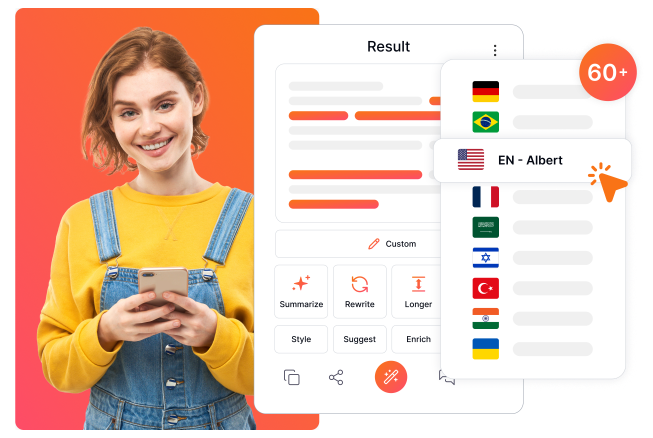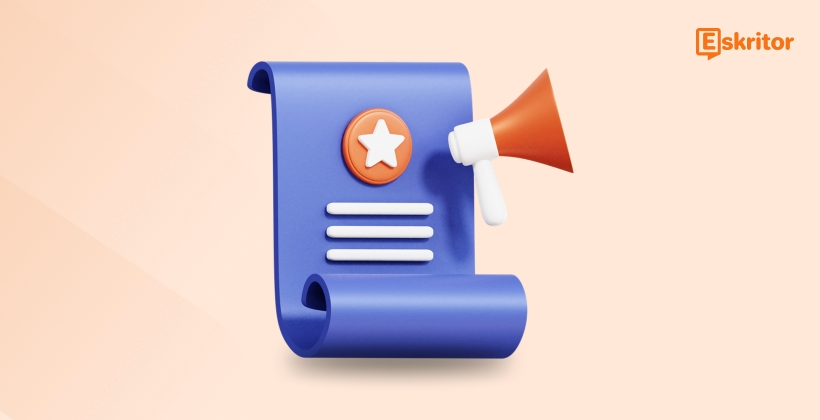AI Editing Features That Improve Your Writing Workflow
AI Editing Features That Improve Your Writing Workflow
Blog Article
The Future of AI Writing Technology Explained
Synthetic intelligence (AI) publishing engineering has evolved rapidly over the past decade, reshaping just how we create and connect to published content. From syntax correction resources to AI-generated novels, the options seem limitless. But wherever precisely is that technology going? Let's examine the improvements, difficulties, and potential potential of AI writer.

How AI Publishing Engineering Performs Today
At its core, AI writing technology depends on Organic Language Processing (NLP) and unit learning. These technologies allow models to understand, make, and increase human language. Resources available today do well at responsibilities like:
1. Material Formation
AI has reached a place where it could make total blog threads, social media marketing sayings, and also information articles. Some versions can handle mimicking individual publishing designs so efficiently that unique between AI- and human-written material is now increasingly difficult.
2. Grammar and Model Recommendation
AI-powered publishing assistants don't just check for grammar and punctuation mistakes; in addition they provide recommendations to enhance tone, understanding, and syntax, making complex writing available to an extensive audience.
3. Message Analysis
AI may examine the mental tone of an item, permitting organizations to examine how their communications will resonate with readers. This really is particularly useful in marketing and client interaction.
The Recent Styles in AI Writing Engineering
A few traits are surrounding another phase of AI-powered publishing methods:
• Personalization
AI publishing technology is increasingly capable of tailoring content to individual preferences. Designs can adapt to a user's writing fashion, ensuring the result thinks authentic.
• Multilingual Functions
Several AI instruments are growing their world wide achieve by offering enhanced translation characteristics and help for multiple languages.
• Enhanced Research Functions
AI instruments today get the ability to analyze great levels of data and present fact-checked, well-researched publishing in seconds, simplifying the method for experts in industries like law, financing, and journalism.
What the Potential Holds for AI Publishing Engineering
1. Increased Creativity
While recent AI is good at generating content, its imagination continues to be limited to designs within their education data. Potential AI isn't only expected to aid but to create original, useful operates that challenge human imagination.
2. Seamless Effort
Imagine an AI that works alongside you in real-time, completing your phrases, performing stay edits, and also brainstorming ideas. AI publishing tools might soon become co-authors, permitting imagination to flow uninterrupted.
3. Ethical and Available Style
With growing matter about plagiarism, misinformation, and opinion, designers will work toward more translucent AI training operations and honest implementation. Future methods will more than likely present more detailed citations and methods to make sure accountability.
Difficulties and Considerations
The development of AI publishing technology isn't without hurdles, including:
• Ethical Problems

Who owns material produced by AI? How can we assure AI-generated content isn't scattering misinformation? These debates stay unresolved.
• Human-AI Stability
Will AI complement human creativity or completely replace certain jobs? Many authors and artists worry about their relevance in a AI-driven world.
• Availability Separate
Not totally all businesses or parts have equal usage of cutting-edge AI tools, increasing issues in regards to the impact of this technology on global inequality.
Adjusting the Way We Create
AI writing technology continues to be in its infancy in comparison to their potential. Whether you're a student designing essays, a material marketer targeting particular readers, or even a author seeking enthusiasm, AI methods will continue to revolutionize the writing process. The next decade promises breakthroughs that blend human ingenuity with device intelligence, creating a potential wherever writing is better, available, and impactful than ever before.
Report this page